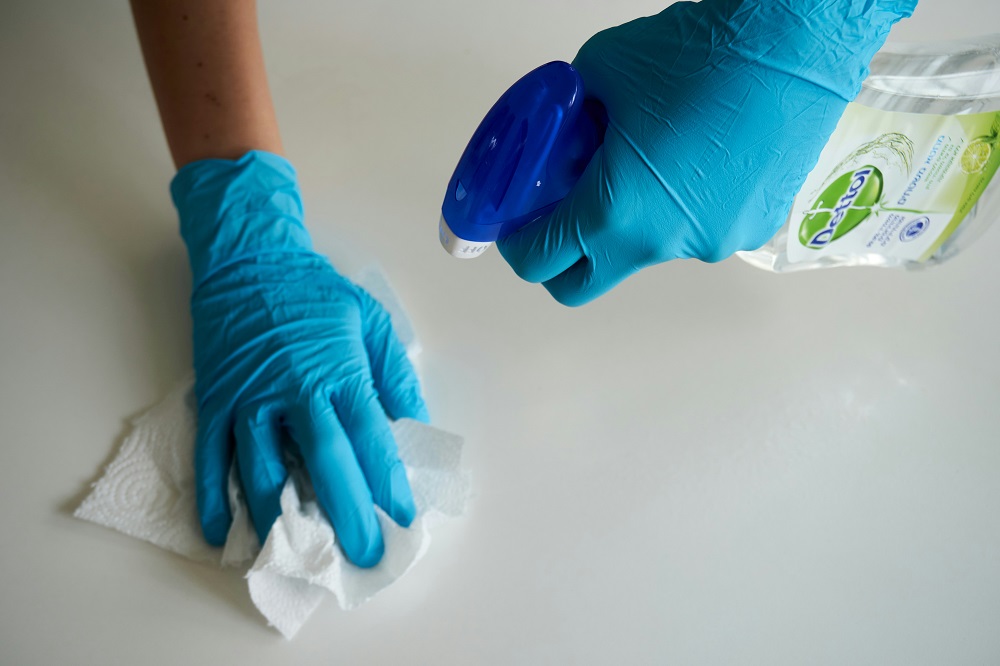When it comes to sprucing up your concrete surfaces, the age-old debate between pressure washing and chemical cleaning baffles many. Each method has pros and cons, but how do you know which is the best choice for your concrete needs?
Before deciding to impact the longevity and appearance of your concrete, it’s crucial to understand the differences between these two popular cleaning techniques. So, let’s break it down and uncover the secrets behind pressure washing versus chemical cleaning for your concrete surfaces.
Pressure Washing vs Chemical Cleaning: Overview
When deciding how to get oil stains off concrete or other stains between pressure washing and chemical cleaning, consider the specific needs of your surface and the level of buildup present. If you’re in Sydney and require expert cleaning for your concrete surfaces, consider Stonemason Services in Sydney for professional assistance.
Pressure washing is a fantastic option for removing dirt, grime, and mildew from concrete surfaces. It utilizes high-pressure water to blast away surface contaminants effectively. This method is ideal for routine cleaning and maintenance tasks, offering a quick and efficient solution for keeping your concrete looking fresh.
On the other hand, chemical cleaning involves using specialized cleaning solutions to break down stubborn stains, grease, and oil on concrete surfaces. It is beneficial for deep cleaning and tackling tough, ingrained dirt that cannot be easily removed with water pressure.
Chemical cleaning can provide a more thorough and targeted approach to cleaning concrete, ensuring a deep and long-lasting clean.
What is Pressure Washing?
Pressure washing is a method of cleaning that uses high-pressure water to remove dirt, grime, and other debris from surfaces. It’s effective in removing stubborn stains and mold but can also damage delicate surfaces if not used correctly.
When considering pressure washing for your concrete surfaces, you should first read the ultimate guide to pressure washing so you can accurately weigh the pros and cons. This will help you determine if it’s the correct cleaning method for your needs.
Pros and Cons
Pros
- Highly efficient for cleaning large surface areas quickly
- Pressure washing can be used on various surfaces, including concrete, brick, siding, decks, and vehicles, making it a versatile cleaning solution for residential and commercial applications.
- Effectively remove stubborn stains, dirt, mold, mildew, algae, and other contaminants from surfaces.
- Typically uses less water compared to traditional cleaning methods
- Preventive maintenance
Cons
- High-pressure water streams can damage delicate surfaces, such as wood, certain types of masonry, painted surfaces, and fragile landscaping, if misused or at excessive pressure settings.
- Improper use of pressure washing equipment can result in injuries to the operator or bystanders and cause property damage.
- Pressure washing can dislodge contaminants such as lead paint, asbestos fibers, or mold spores, posing health risks if proper containment and disposal procedures are not followed.
- Limited effectiveness on certain stains
What is Chemical Cleaning?
When it comes to chemical cleaning for concrete surfaces, you’ll find that it involves using specialized solutions to remove tough stains and grime. Understanding the pros and cons of this method is crucial in determining if it’s the right choice for your cleaning needs.
Let’s explore the advantages and disadvantages to make an informed decision.
Pros and Cons
Pros
- Chemical cleaning solutions are often formulated to target specific types of stains, such as grease, oil, rust, or mineral deposits. They are highly effective for removing stubborn or deeply ingrained stains from surfaces.
- It can be used on various surfaces, including concrete, metal, masonry, tile, and grout.
- Easy to apply – either by spraying, brushing, or soaking, requiring minimal physical effort
- Often works quickly to break down and dissolve stains
- Many chemical cleaning products are available in eco-friendly formulations that are biodegradable
Cons
- Chemical cleaning agents can pose health risks, causing skin and respiratory issues upon contact or inhalation, necessitating careful handling and protective gear.
- These cleaners can be environmentally harmful, with improper disposal leading to soil and water contamination. Some may contain damaging substances and require careful disposal.
- Improper use can damage surfaces, leading to discoloration, corrosion, or material weakening, and may necessitate additional precautions to avoid this distress.
- Requiring ventilation and safety equipment adds to the cleaning process’s cost and complexity. Chemical residues might also attract dirt, hastening re-soiling.
- Frequent use of harsh chemicals could degrade materials over time, particularly softer or porous ones, heightening susceptibility to damage.
Which is the Right Method for Concrete?
To determine the proper method for cleaning concrete flooring, assess the nature of the stains and the type of concrete surface involved.
For general dirt and grime, pressure washing can be effective on most concrete surfaces. Its high-pressure water stream can blast away surface-level stains efficiently.
However, chemical cleaning may be necessary for more stubborn stains like oil or rust. Chemical cleaners are formulated to break down specific types of stains, making them more suitable for targeted cleaning.
Consider the environment as well when choosing a cleaning method. Pressure washing uses much water and can lead to runoff concerns, while chemical cleaners may have environmental implications if not used responsibly.
Additionally, think about the surface texture of the concrete. Pressure washing can be too harsh for delicate surfaces, potentially causing damage. Chemical cleaners, when used correctly, can be gentler on certain types of concrete.
Conclusion
When deciding between pressure washing and chemical cleaning for concrete surfaces, consider the level of dirt and grime present. Pressure washing is excellent for surface-level dirt and stains, while chemical cleaning can tackle more challenging, embedded stains.
Ultimately, the proper method depends on the specific cleaning needs of your concrete. Choose wisely for the best results.

